The Tesla Powerwall, paired with a solar roof or panel, offers an energy-reliant solution for homes, but installation can be costly. Specifically, the 13.5kWh Tesla Powerwall costs around $10,500, and adding a solar panel can range from $15,000 to $25,000, totaling potentially over $25,500. For homes with above-average electricity consumption, one 13.5kWh Powerwall might be inadequate. Energy Sage notes that a single 13.5kWh Powerwall can power basic home electronics for 24 hours. However, greater power needs require additional Powerwalls and solar panels, raising the cost further.
The Powerwall might not be for everyone, so 8MSolar has compiled a list of potential alternatives as you research and plan out your solar project. You can learn more from our Tesla Powerwall review.
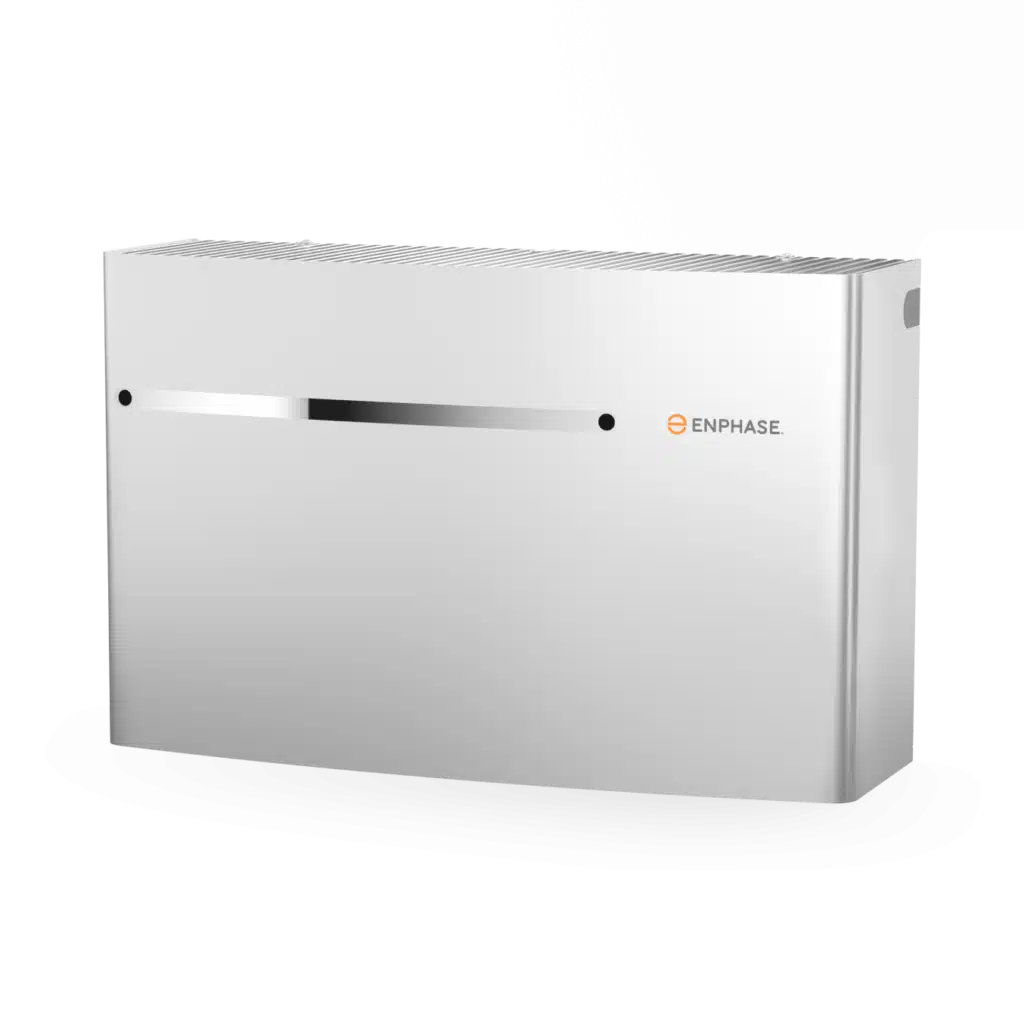
The Enphase IQ Battery integrates smoothly with solar panel systems, enabling homeowners to store surplus solar energy. This proves especially beneficial in regions where utility policies on net metering have evolved or where time-of-use rates are in effect. The battery acts as an “all-in-one AC-coupled storage system,” capturing excess energy when solar generation surpasses household needs and supplying it when solar output wanes, thereby diminishing grid reliance. Available in multiple sizes, such as the Encharge 3/3T and 10/10T, its flexibility allows for the incorporation of multiple batteries tailored to specific energy requirements. With a notable roundtrip efficiency of 89% and a 100% depth of discharge, it stands out for its performance.
The IQ Battery, made of lithium iron phosphate, guarantees power and safety. Enphase backs it with a 10-year warranty, ensuring the battery sustains at least 70% of its capacity throughout. Although currently on pre-order, the estimated price ranges between $6,000 to $20,000, depending on the model.
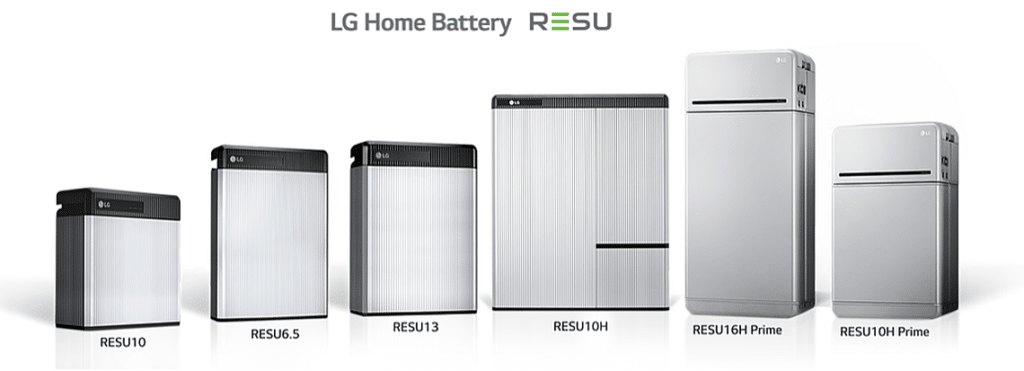
LG Chem, through its subsidiary LG Energy Solution, offers the RESU10H Prime and RESU16H Prime batteries, renowned for their reliability and cost-effectiveness. These products stand out in the home battery sector, with LG Chem being an established player in the lithium-ion battery domain, even supplying for notable electric vehicles such as the Chevy Bolt. The LG Chem batteries, launched in 2021, offer a host of benefits like protection against grid outages, time-of-use load-shifting, and fostering energy independence. They have been posited as a strong competitor to the Tesla Powerwall.
The LG Chem RESU10H and RESU16H Prime, priced between $9,000-$11,000 and upwards of $11,000 respectively, are DC batteries, which means they have a better round-trip efficiency compared to AC batteries, losing less energy during charge-discharge cycles. However, this also implies that they require specific inverters, making them a bit challenging to retrofit into existing solar systems. While they cannot stack output, they are apt for backing up basic essentials. Although they have passive cooling, which may not be as effective as liquid cooling systems like in the Tesla Powerwall, they are durable and dependable. When factoring in the federal tax credits and potential state incentives, the LG Chem batteries emerge as a competitively priced solution, offering substantial savings compared to other market options like the Tesla Powerwall.
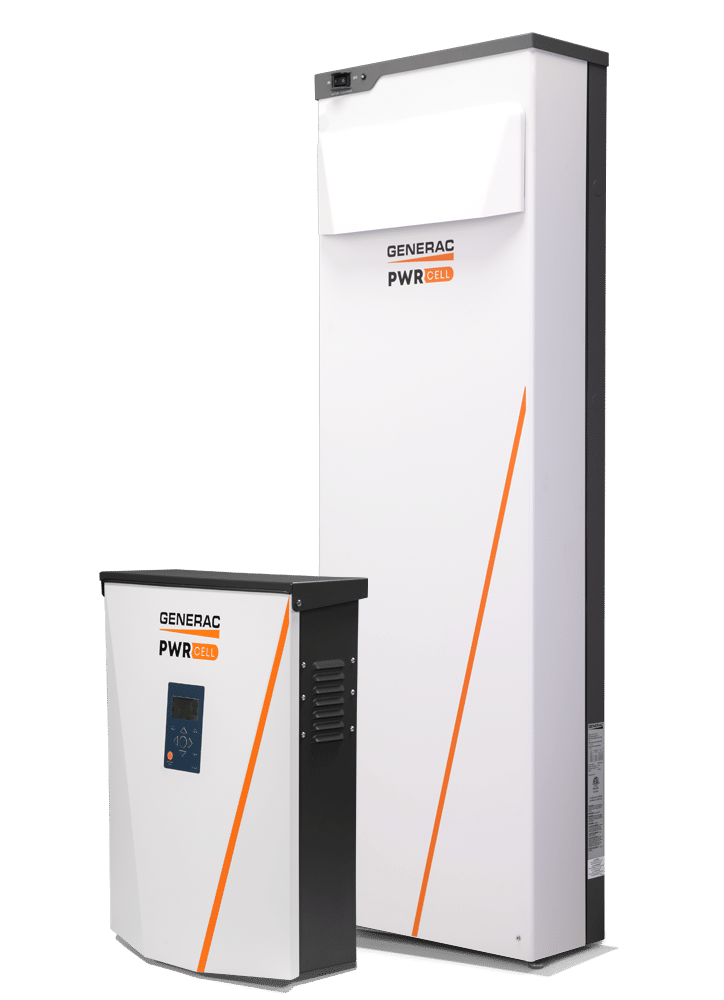
This battery is distinguished by its modularity, enabling homeowners to select the ideal capacity for their energy requirements. Rex Liu, Generac’s vice president of product management, emphasized the modular nature of the battery, noting that every home’s energy needs are unique, and having a customizable battery offers immense value to the market.
The Generac Pwrcell’s specifications reveal its adaptability and impressive efficiency. It can store between 9 kWh and 18 kWh of energy, depending on the number of battery modules installed in its cabinet. Its round-trip efficiency stands at a notable 96.5%, and the capacity can be expanded in 3 kWh increments. However, while the Pwrcell boasts solid technical specifications, customer feedback on Generac’s overall product and service has been less than stellar. Many users have expressed concerns about the product’s durability and the company’s customer support, particularly regarding warranty issues. Despite these issues, the Generac Pwrcell can be monitored via the well-reviewed PWRview app, and the system’s cost ranges between $10,000 and $20,000, depending on the chosen capacity.
In conclusion, the Generac Pwrcell stands out for its modular design and efficiency. Yet, potential buyers should weigh its technical merits against the company’s mixed customer service reviews. Consulting with certified installers and gathering multiple quotes can also offer a clearer perspective on whether the Pwrcell is the right choice for individual energy storage needs.
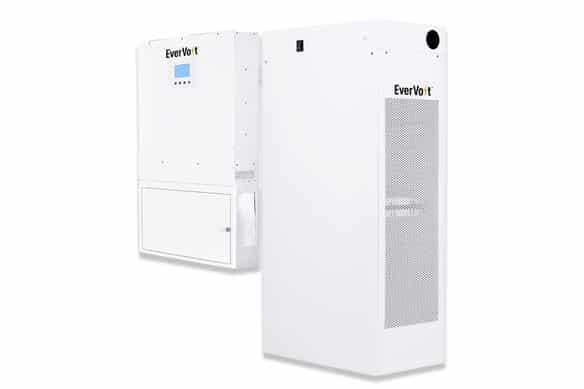
The Panasonic Evervolt Energy Storage System is essentially a massive rechargeable battery powered by the sun, designed to supply power to homes when required. Evervolt stands out from other energy storage systems, not only due to its sleek design but also its ability to integrate seamlessly with homes. There are four distinct versions of Evervolt, including both AC and DC coupled models, that can be modularly combined for more potent systems. Moreover, the Evervolt can work in conjunction with solar panel systems, forming a powerful duo that can save homeowners money.
In terms of performance, Evervolt has remarkable energy storage capabilities, similar to how a camel stores water for long treks. It’s not just about the sheer capacity to store power; Evervolt’s intelligence in power management sets it apart. While comparing Evervolt to other storage solutions, it’s essential to factor in its power and usable capacity. The larger EverVolt Plus model boasts a power capacity of 5.5 kW and usable capacity of 17.1 kWh. The term efficiency for Evervolt isn’t just about maximum storage but about optimizing every bit of stored energy.
Regarding the cost, the Panasonic EverVolt price, including installation, ranges from $15,000 to $20,000, with the Plus model priced at the higher end. Companies like IntegrateSun might offer installations at a reduced rate. If homeowners are considering coupling the EverVolt with a solar system, it’s important to note that a 5 kW solar system could range between $9,000 to $15,000, depending on location and equipment. Though the initial investment might seem steep, opting for a solar-plus-storage system might be financially beneficial in the long run, contingent on electric utility rate structures and individual preferences for solar batteries.
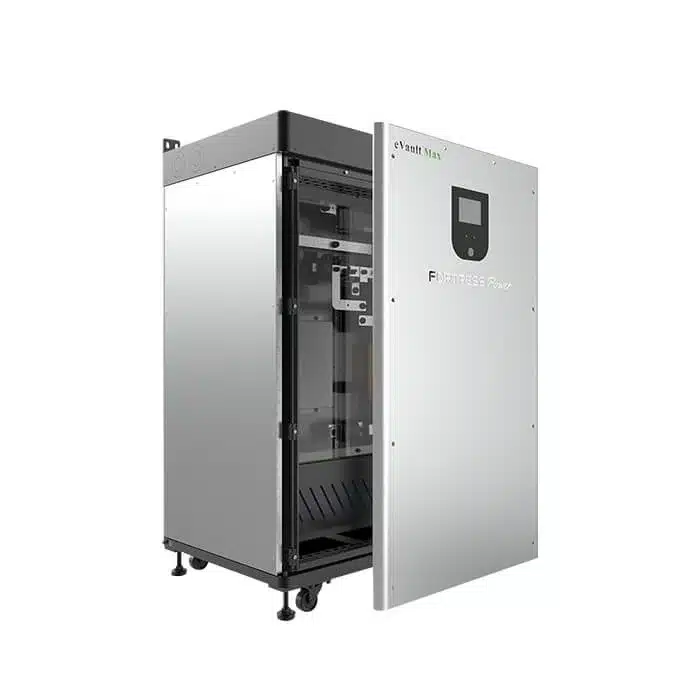
Fortress Power is a leading provider of lithium-ion storage solutions with a focus on affordability and user-friendliness. Their batteries are compact, suitable for most solar systems, and aim to reduce grid reliance while optimizing solar storage. The company offers four main models: eVault 18.5, eVault Max 18.5, eFlex 5.4, and LFP-5K-48V. The batteries come in three sizes: 18.5 kWh, 5.4 kWh, and 5.12 kWh, with varying power outputs and capacities. For instance, the eVault 18.5 has a maximum power of 9.6 kW and a usable capacity of 18.5 kWh. These units are modular, meaning multiple batteries can be connected to increase total storage capacity. For example, the eVault 18.5 can be stacked up to 12 units for a combined 222 kWh.
Performance metrics crucial to evaluating Fortress Power batteries include depth of discharge (DoD) and roundtrip efficiency. These batteries boast a DoD of up to 100%, signifying their efficient and safe lithium iron phosphate (LFP) chemistry. Their roundtrip efficiency is over 98%, implying minimal energy loss during charge and discharge cycles. In terms of functionality, Fortress Power batteries offer backup power, allowing homeowners to achieve grid independence during outages without needing an external transfer switch. The batteries use LFP chemistry, renowned for its safety and high power rating. The company provides a warranty covering 10 years or 6,000 to 8,000 cycles, ensuring the battery retains at least 70% of its charge capacity over this period.
In 2022, Fortress Power introduced the Guardian, a device enabling cloud connectivity for their batteries. With this device, users can monitor various battery metrics remotely and share data with Fortress for diagnostics. Costs for these batteries vary based on size and installation requirements, with a 5 kWh battery estimated at $6,500 and an 18.5 kWh unit at $24,000, including full system installation. Combining this with a solar system further increases the investment, but potential financial incentives in certain regions can offset these costs.
This is not an exhaustive list of all of the Tesla Powerwall alternatives, but they do represent some of the best. If you are struggling with building out your solar project and deciding on which solar batteries best suit your needs, our team of Solar Installer experts in North Carolina at 8MSolar.
This content was originally published here.
